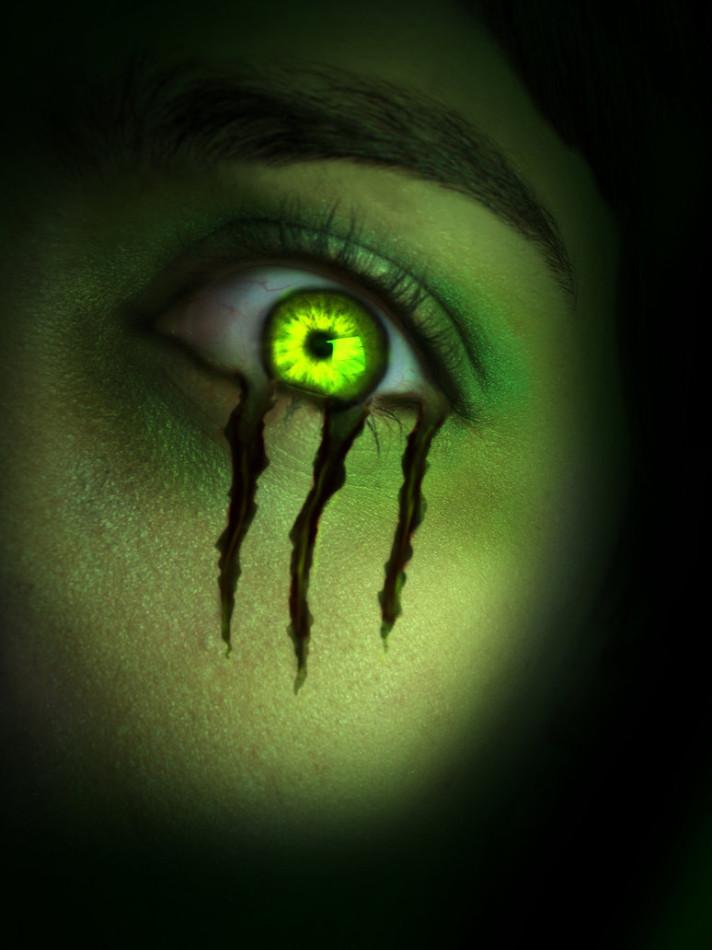Energy drinks: worth the risk?
Following teen deaths caused by energy drinks, student reevaluate usage
Since 2005, energy drinks world-wide have been sued for deaths related to the consumption of their product. Monster energy drink has been making headlines recently after being charged with two teenage deaths in the past year. Furthermore, the amount of emergency room visits related to energy drink toxicity has doubled within the past four years. Most of the energy drink-related hospitalizations are due to dehydration, heat exhaustion and heart problems.
The FDA doesn’t allow soda to have more than 0.02 percent caffeine, but energy drinks, including Monster, Red Bull and 5 Hour Energy, don’t have to follow this rule. Energy drinks aren’t required to label the exact measurement of caffeine and other ingredients, either, because they are considered “supplements” rather than “food.”
The caffeine levels in Monster can lead to elevated blood pressure, seizures and cardiac arrest. Anais Fournier, a 14-year-old girl, died in December 2011 after drinking two Monster energy drinks within 24-hours. She went into cardiac arrest, and six days later, she died. She was in an induced coma to keep her brain from swelling. Her mother, Wendy Crossland, is now suing the Monster corporation for the death of her daughter, even though there was no blood test performed to confirm that the girl died of “caffeine toxicity,” as the lawsuit claims.
Alex Morris, a 19-year-old boy, also went into cardiac arrest on the morning of July 1, 2013. He was taken to the hospital where he was pronounced dead. According to beveragedaily.com, he drank two 24-ounce Monsters every day for three years, including the day he died. His mother is also suing the Corona-based company for the death of her son.
“I used to drink two cups of coffee every day,” junior Taylor Murphy said. “I would get jittery, my head would spin, and I couldn’t get up for an hour or more.”
The symptoms of a caffeine “overdose” include jitters, irritability, and extreme mood changes. Another symptom is the “need” to have more caffeine, such as coffee or energy drinks.
“Caffeine is a drug,” Murphy said. “I had withdrawal symptoms as if I was on cocaine.”
Energy drinks like Monster and Red-Bull stimulate the senses to keep people awake and moving. These effects usually only last for a few hours, and when they wear off, people are left tired and crave another drink. Energy drinks can cause chest pains, dizziness and insomnia.
With blood pressure rising with each sip of Monster, some say it’s a step closer to a fatality.
“If your blood pressure starts to rise at a young age,” nursing teacher Jill Bologna said, “it’ll lead to future health problems.”
Bologna is starting vital signs with her nursing class, which include recording a person’s pulse.
“In every class, there’s always that one student whose blood pressure is extremely high,” Bologna said. “I’d ask them if they had an energy that day, and they would respond, ‘Yes, I had one this morning.’”
Although Bologna cannot restrict or give limitations for Monster in her classroom, she does give a speech on why it’s bad for health and what it can do to the body. Bologna said that sometimes the lecture will resonate with students and reduce their energy drink intake, but other times students ignore the advice.
Large amounts of caffeine aren’t limited to energy drinks; some medications also contain high levels. Excedrin Extra Strength contains 65 mg. of caffeine, and while it is supposed to relieve headaches and migraines, caffeine is known to cause headaches. Midol, which is used for pain relief, also contains caffeine that can cause shaking and stress.
Normal caffeine levels are capped at about two to four cups of coffee. Energy drinks should be avoided, but one can of Monster on occasion won’t cause permanent damage. Drinking three or more cans of Monster or five cups of coffee per day may indicate a caffeine addiction.
However, those addicted to caffeine who stop abruptly might experience some withdrawal symptoms, such as increased thirst, dizziness, confusion, irregular heartbeat, and more. Caffeine can be just as addictive as any other drug.
Did you know?
•Approximately 70 percent of emergency room visits involve teens from 12-17.
•Nearly half of the 5,444 reported caffeine overdoses in 2007 happened to people younger than 19.
• Monster consumers are at higher risk for cardiac arrest, high blood pressure, heart palpitations and dehydration.
•More than 600 mg. of caffeine can cause side effects such as jitters, heart palpitations and panic attacks.
• Two cans of 240 mg. Monster is equivalent to fourteen 12-ounce cans of Coca-Cola.
•Monster energy drinks contain 240 milligrams of caffeine, which equals about seven cups of coffee.







